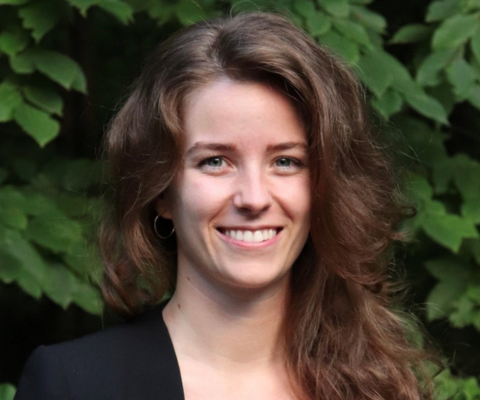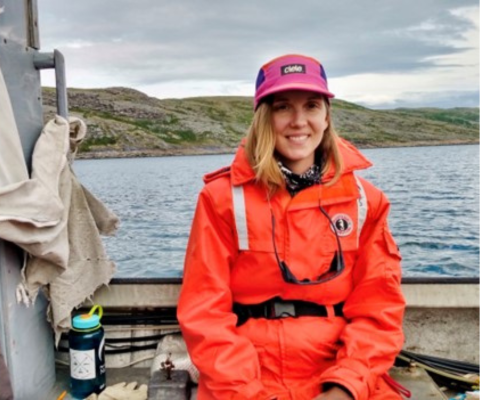Research aims to improve preterm infant health through mother’s milk

The challenges faced by parents of preterm infants are immense and often compounded by their child’s elevated risks of health complications that can persist into adulthood.
Dr. Michelle Asbury, recipient of a 2023 L’Oréal Canada For Women in Science Research Excellence Fellowship, hopes to change that. Her visionary research project aims to improve the health outcomes of preterm infants.
Preterm infants and gut microbiome
Preterm infants are disproportionately at risk of disease and death in early life and into adulthood due to many factors, one of which involves their gut microbiome—the bacteria and microorganisms that live in the digestive system.
These infants have altered gut microbiomes which directly interact with their immune systems and impact short- and long-term health outcomes. Dr. Asbury seeks to understand how nutrition in those early critical days of a preterm infant’s life can improve their gut microbiomes and strengthen their immune systems.
Mother’s milk—the nutritional key
As far as solutions go, early-life nutrition is a promising approach. Nutrition is modifiable and is known to significantly change microbiome development. Many infants get their early nutrition from human milk, which is a rich source of nutrition, microorganisms and health-benefiting components such as antibodies and hormones. However, we lack a deeper understanding of human milk and which components work together to promote infant health.
With the support of the L’Oréal Canada For Women in Science Research Excellence Fellowship, Dr. Asbury’s project will work with approximately 400 mother-infant pairs over a full year of infant development, and a team of microbiome experts, to unravel the intricacies of a mother’s and donor’s human milk and how it impacts the early-life microbiome and immune systems of preterm infants. Ultimately, Dr. Asbury hopes her research and findings will inform further exploration of preterm infant health and result in tangible outcomes, such as the development of therapeutics and nutritional products that mimic human milk and effectively support infants’ microbiome and immune development.
About Michelle Asbury
Dr. Michelle Asbury completed both her master’s and PhD in nutritional sciences at the University of Toronto, where she studied how in-hospital nutrition impacts the growth of preterm infants and their gut microbiome. Now a postdoctoral associate in the departments of physiology & pharmacology and pediatrics at the University of Calgary, Dr. Asbury, under the guidance of Dr. Marie-Claire Arrieta, is continuing her research in preterm infant gut microbiome and the nutritional impacts of mother’s milk in hopes of improving the health of preterm infants globally.
Watch Dr. Asbury explain her research here.
About Universities Canada
Universities Canada is the voice of Canada’s universities at home and abroad, advancing higher education, research and innovation for the benefit of all Canadians.
Media contact:
Lisa Wallace
Assistant Director, Communications
Universities Canada
communications@archives.univcan.ca
Tagged: Programs and scholarships, Research and technology, Strong and inclusive communities
Related news
-

How graduating from university can skyrocket first-generation students’ careers and earning potential
-

BCDI 2030 launches second round of funding for scholarship projects for study in Canada
-

Co-developing research on Arctic char with Inuit Knowledge
-

Canada’s post-secondary institutions to help empower African students with the first 14 BCDI 2030 projects